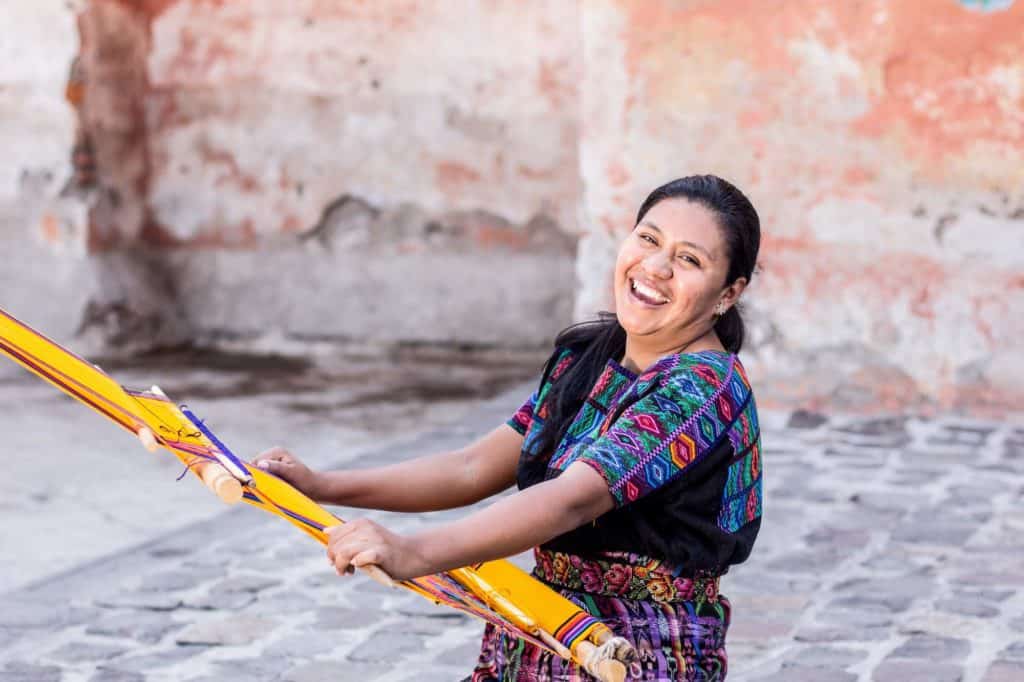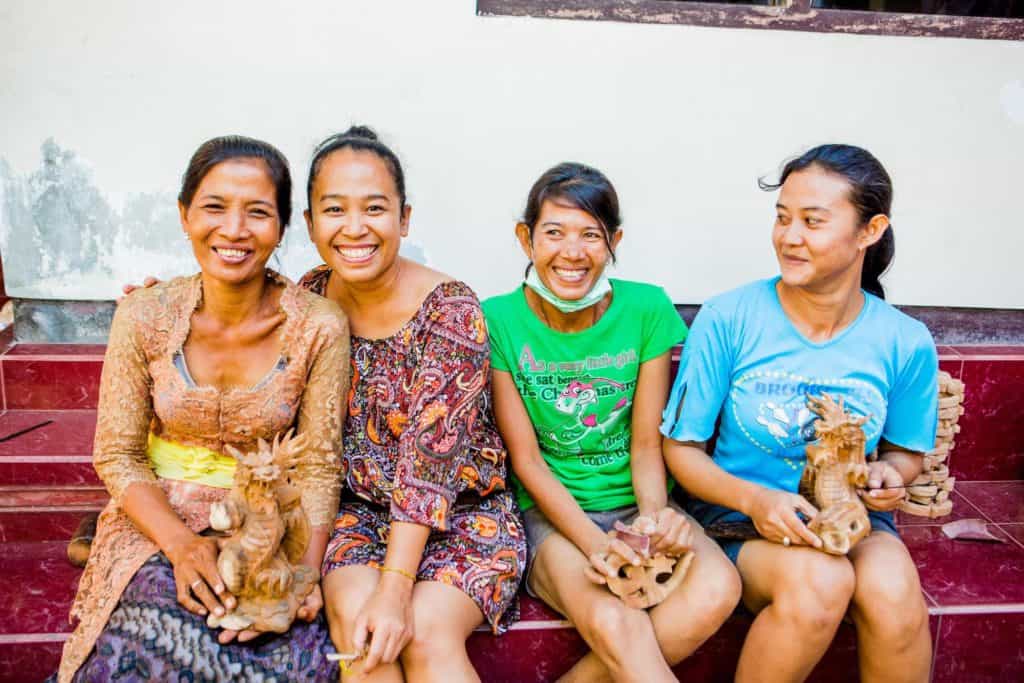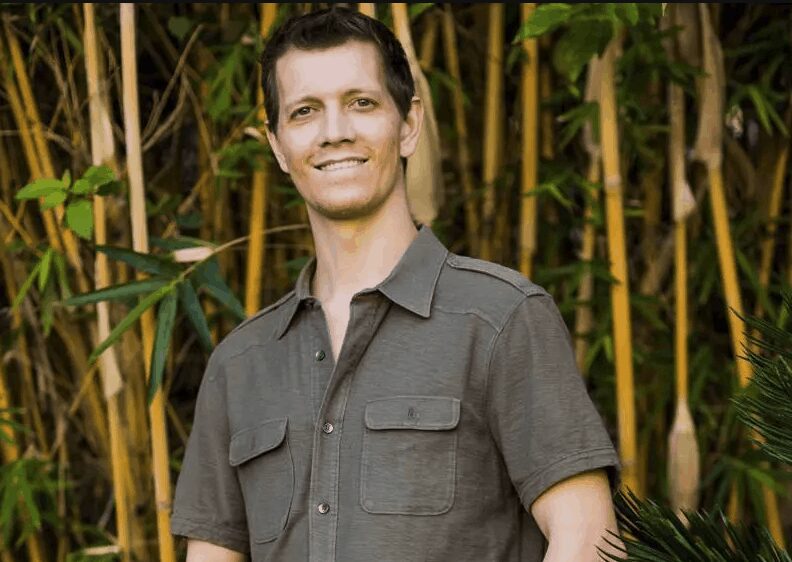In episode 38 of the Disruptors for GOOD podcast, I speak with Roberto Milk, the Co-founder and CEO of NOVICA, on creating the world’s largest social impact marketplace. To date, customers have helped send nearly $100 million to artisans around the world, and counting!
Listen to other episodes here.
NOVICA started with a dream to create a better world for artisans. Along the way, the team discovered something very important – as artisans around the world succeeded, there was also a visible and profound impact on the communities around them.
Your purchases are that powerful.
They directly and indirectly provide for education, help with health care, fund basic needs, support children, preserve disappearing arts, and of course, spread happiness around the world.
The marketplace features the works of more than 20,000 artisans for sale, improving the economic prospects of artists in some of the world’s most remote areas.
Showcasing their products on NOVICA, offers artisans fair prices, no binding contracts and the freedom to make a success of their craft by building a sustainable business.



Through a successful microcredit partnership with Kiva, NOVICA also gives artisans access to no interest microcredit loans that help build their businesses, allowing them to purchase materials, supplies and even get assistance to support their growing businesses.
Artisans through NOVICA, have already earned nearly $100 million in funds by selling on NOVICA.com. Roberto and his team are building a global infrastructure that will increase that number to $1 billion.
According to the United Nations Development Programme, artisan activity is the second-largest employer in the developing world behind agriculture.
NOVICA has empowered global artisans through greater access to international customers, freedom to set their own prices, and the ability to focus on their craft, creating a visible and profound impact on the communities around them.
For this work and more, Roberto has been selected as the 2020 YPO Global Impact regional honoree for the Pacific U.S.
Interview Transcript
Grant: What’s up, everybody? This is Grant from Causeartist. Welcome to Episode 38 of the Disruptors for Good podcast. Today, we’re speaking with Roberto Milk, the co-founder and CEO of Novica. Novica is the largest impact marketplace in the world for artisans. To date, they’ve helped send nearly $100 million to global artisans around the world for their work.
We talk about how the company got started two decades ago and how it has creatively connected people living in extreme poverty with the global economy through their marketplace. Imagine it as the Amazon for artisans—a platform that has grown through key partnerships with organizations like National Geographic and Kiva, offering artisans very low-interest loans with nearly 100% repayment rates.
The platform enables artisans to get professional photos and videos taken of their products, tell their stories, and essentially run their business from one of Novica’s hubs in eight different regions. It’s a phenomenal two-decade journey that has profoundly impacted lives. Novica is on track to reach $100 million sent to artisans and aims for $1 billion.
They’re expanding into places like Germany and working with the government of Haiti to establish more hubs. It’s a remarkable story of how passion, good people, and a solid team can build something so impactful.
On a side note, I’m taking nominations for the 2020 Nonprofit Founders to Watch and Social Entrepreneurs to Watch lists. These lists have been incredibly successful, and I’m excited to showcase more innovative leaders in the nonprofit space. If you know someone or want to nominate yourself, send me their name and bio at grant@causeartist.com.
The nomination process will be open for about two weeks, and I’ll circulate the post for the next 10 months. As always, thank you for your support. Enjoy the interview with Roberto Milk. Thanks!
05:04
Grant: I usually like to start with a person’s journey—how they got to where they are. Your journey has been long and eventful, with a lot of interesting inspirations along the way. Let’s talk about the early days, maybe around your time at Stanford, or even before that.
Roberto: Novica is really a result of all these childhood experiences layered with my college experiences. Both my parents were teachers—my dad was a professor, and my mom was a bilingual kindergarten teacher.
We had long summers where they’d throw us kids in a van, and we’d take off on trips, often heading down to Mexico from our home in San Antonio, Texas. My dad would ask, “Where do you want to go tomorrow?” and we’d figure it out with maps.
05:45
Grant: And your dad was in the Peace Corps, right? That must have been a big inspiration, having a male figure who went through that.
Roberto: Yes, for sure. He got it from his parents, who were missionaries and spent the first 16 years of their lives in Cuba. My dad later joined the Peace Corps and was sent to Peru to teach math, where he met my mom, who was also a teacher. That’s where my life started.
06:37
Grant: Did he ever try to convince you to join the Peace Corps, or did you have different plans?
Roberto: I would have loved to join the Peace Corps. My dad’s stories were really inspiring. He never preached, but he taught us by example, showing us how to look at the world through a lens of helping others and making an impact.
07:28
Grant: When people ask you what Novica is, how do you explain it? There’s so much going on with it, but I’m sure there are core values and missions behind it.
Roberto: In a simple way, Novica is a platform that represents artisans around the world, giving them a place to sell their goods and be successful. We wanted to reinvent the traditional system, which often hides artisans behind multiple layers of middlemen.
We focus on finding the artisans, giving them control over their inventory and pricing, and offering them regional offices where they can get professional photos taken, upload their products, and tell their stories. Essentially, we handle everything except making the products, allowing artisans to focus on their craft.
08:42
Grant: The impact Novica has made over the last two decades is immense. Can you share more about that?
Roberto: Absolutely. Our mission has always been about empowering artisans, preserving culture, and making an impact on communities. For example, we realized early on that many artisans lacked access to capital, so we tried partnering with local banks. When that didn’t work out, we started offering loans ourselves, and eventually partnered with Kiva.
This partnership has been incredible—our artisans have nearly a 100% repayment rate. We started thinking of ourselves as more than just a marketplace; we’re spreading happiness by connecting artisans with customers and enabling them to grow their businesses. We’re now close to hitting the $100 million mark in funds sent to artisans.
11:05
Grant: Is that $100 million from sales on the marketplace, or does it include loans through Kiva?
Roberto: That’s just from sales. The loans are separate, and they’re repaid almost 100% of the time. Our customers are directly helping artisans grow their businesses, and it’s incredibly rewarding to see them succeed and scale up.
12:15
Grant: Let’s go back to the early days. In 2002-2003, technology wasn’t what it is today. How different was the marketplace back then compared to now?
Roberto: It was much harder back then. There was a lot of distrust of the internet in many communities, and artisans felt excluded from technology. But over time, they began to feel connected through our platform, especially as they saw the impact it had on their lives.
Now, it’s easier because the world is more networked, and we’re able to offer services like professional photography, video, and even live streaming from artisan studios. The potential for future innovations is huge, and we’re excited to keep evolving.
14:43
Grant: What were some of the first countries where you found artisans? Was it through personal connections or something else?
Roberto: It was a mix of personal connections and identifying regions with rich handcrafted traditions. My family is from Peru, so that was an easy starting point. My wife is Brazilian, and my mother-in-law had a lot of contacts in Brazil from her time with the United Nations.
We also had friends in Mexico, Ghana, and other countries who helped us set up offices there. It was very much a grassroots effort, leveraging our personal networks to find and connect with talented artisans around the world.
16:44
Grant: Over the years, there must have been some amazing success stories where the platform really changed a family’s life. Can you share one of those stories?
Roberto: We have thousands of those stories. One that stands out is Balbina Huaytalla from Peru. She and her family escaped terrorism in the highlands and moved to a shantytown in Lima.
Through Novica, she’s not only succeeded but is now teaching young women how to make folk art figurines. She’s turned her life around and is paying it forward by inspiring and training others. It’s a beautiful example of how our platform can uplift entire communities.
19:39
Grant: You mentioned regional offices where artisans can get professional services like photography. How many of these offices do you have now?
Roberto: We have eight regional offices around the world. These offices are like hubs where artisans can come in and get their products photographed, certified, and prepared for sale.
We wanted to offer a top-class service that treats artisans like the talented artists they are, giving them the respect and support they deserve. These offices also handle logistics, quality control, and other aspects of the business, allowing artisans to focus on what they do best—creating beautiful items.
23:21
Grant: You’ve been around for over 20 years, which is impressive in an industry where many marketplaces come and go. How has the business matured over time?
Roberto: We were thinking big from the start, and we were fortunate to get some key breaks early on. We partnered with National Geographic and the World Bank, which gave us the credibility and financial support to grow. Over the years, we’ve built out the infrastructure and continued to refine our operations.
There are always challenges, especially with logistics and the wide range of product categories we handle, but we’re committed to continuing our growth. We see the $100 million milestone as just the beginning, with our eyes set on reaching $1 billion in funds sent to artisans.
25:07
Grant: Is reaching that $1 billion goal about expanding into more countries or working with more artisans?
Roberto: It’s both—expanding into more countries, working with more artisans, and continuing to build strong partnerships with organizations like UNICEF and Kiva. We’re also exploring opportunities to license our platform to other nonprofits and organizations, helping them power their own stores with artisan goods that align with their missions.
29:00
Grant: Is there potential for this model to work in the United States, particularly in underserved communities?
Roberto: Absolutely. We’ve been wanting to expand into the U.S. for a while, but it’s a bigger challenge due to higher costs. We’re exploring partnerships with foundations and focusing on areas like Native American tribes.
We believe that art with meaning—art that tells a story—is incredibly powerful, and there’s a lot of untapped potential in the U.S. We want to offer the same level of service here as we do internationally, and we’re hopeful that we can make it happen soon.
34:30
Grant: How does the process of onboarding an artisan work? Do they apply online, bring something into a regional office, or mail it in?
Roberto: It varies. Some artisans send in their work by WhatsApp or mail, while others come into the regional office in person. The first time is usually in person, where they present their work. If they’re accepted, it’s a big day—they get photographed, their bio is written, and their products are uploaded. If not, we give them feedback on how to improve and encourage them to try again later.
We’ve found that setting a high standard motivates artisans to keep improving, and many who don’t make it the first time come back later with even better work.
36:35
Grant: What does it take to open a regional office? Do you work with governments, or is it based on artisan demand?
Roberto: It’s a mix of both. We’re currently talking with the Haitian government, for example, about opening an office there. Early on, we relied heavily on government contacts, particularly through my mother-in-law, who had connections from her time with the United Nations.
We also look at the number of artisans in the region and the logistics involved. The goal is always to offer the same high level of service, ensuring that artisans have the support they need to succeed.
40:18
Grant: You’ve had so much experience in global travel and economic development. What are some of the key lessons you’ve learned over the years?
Roberto: One of the biggest things I’ve learned is the power of a smile. Smiling and being happy transcends language barriers and opens doors everywhere. I also try to learn a few basic words in the local language whenever I travel—it goes a long way in building connections. For social entrepreneurs, I’d emphasize the importance of balance in your life.
Running a business is hard enough, but when you add an impact model, it elevates what’s at stake. Surround yourself with mission-aligned people and find peer groups, like the Entrepreneurs’ Organization or YPO, that offer support and guidance. These groups have been life-changing for me, providing a personal board of directors that helps me navigate both business and personal challenges.
48:46
Grant: I appreciate you taking the time to share your story and the Novica journey. Reaching $100 million is an incredible achievement, and I’m confident you’ll hit that $1 billion mark even faster.
Roberto: Thank you, Grant. It’s been a pleasure talking with you, and I’m grateful for the opportunity to share our story. Looking forward to continuing this journey and making an even greater impact.







